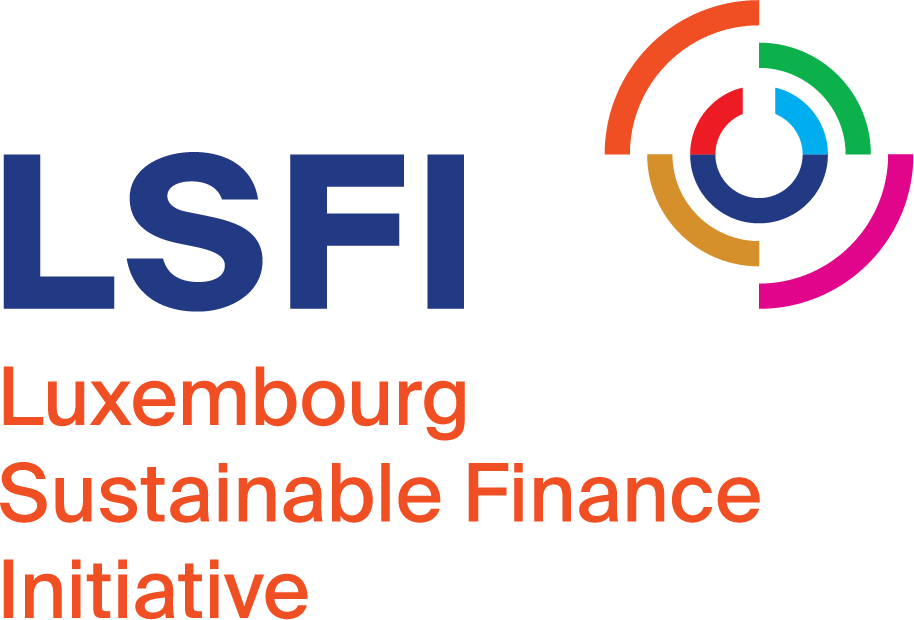A significant amount of capital is required to tackle the pressing consequences of climate change and revert the situation. Until now, most of the climate change adaptation and mitigation efforts have relied on public investment. However, following the increase in climate-related disasters, further capital to fight these events and quickly transition is required. Private capital is thus very much needed to tackle this situation.
To support first- and second-time fund managers aiming to launch a fund in the space of Climate Finance, in 2018, Luxembourg launched the International Climate Finance Accelerator. This unique public-private partnership provides technical and financial support to emerging fund managers who want to push for Climate Action.
This month we have interviewed Stephan Peters, Managing Director at the International Climate Finance Accelerator (ICFA). We discussed how the ICFA supports these fund managers and what are the main challenges their cohorts face, how the programme is structured, and how the climate finance funds space is evolving over time.
LSFI: The ICFA just announced the 2022 Cohort. Which support do you provide?
Stephan Peters: The ICFA supports emerging fund managers, focused on climate action, who are looking to raise their first or second fund. During our programme, we help them over a period of two years with financial and technical support.
First, we provide financial support through a service envelope of €80,000 that can be used to structure their fund, define their risk management policy, develop their impact measurement and management approach, etc. We also facilitate access to a working capital loan of €200,000 provided by Spuerkeess and backed by a guarantee from the Luxembourg Government. The fund managers can use this loan to cover expenses related to fund marketing, team development, pipeline building, and more. The fund managers also get discounted access to the services of our twelve valued private partners, which are all financial services firms with expertise in sustainable finance.
As part of the technical support, we extend training, coaching, and fundraising advice to our fund managers. We provide three levels of training during the selection process and their first year in the programme. These trainings are provided by our private partners on topics such as fund structuring, fund management, fund distribution, and impact management.
Furthermore, we match each fund manager with a coach, who dedicates their time to provide expert advice and feedback to the fund manager and helps expand the fund manager’s network.
The fund managers also receive additional assistance such as advice from their peers in the wider ICFA cohort community. Our community consists of previously and currently supported climate fund managers, who are willing to share lessons learnt on structuring fundraising, and other topics as part of our peer learning sessions.
Finally, the ICFA team helps the fund managers connect with various institutional investors, join investor networks, and attend impact and climate events. We provide visibility to our fund managers through dedicated climate finance content and events.
Can you explain to us what’s the profile of the typical first-time fund manager who takes part in the ICFA Cohort?
When we talk about first-time fund managers, it usually means a team of professionals who join forces and have been active or partially involved in making investments in different sectors. Typically, each team member has its own specialisation. For example, each team includes at least with one person who has experience in raising a fund, who understands funds management, has a network of potential institutional investors, etc., in a nutshell, who has a background in finance and administration. This is generally complemented by someone who has sector expertise, with experience with companies and projects in which the newly set up fund will seek to invest in and create more value with. A more operational and strategic understanding of the sector is a key success factor. Both profiles are essential for a good outcome.
Most of these fund manager teams are composed of two founding members, complemented by more junior profiles, or by an advisory board with senior individuals.
What differentiates the ICFA from other programmes?
There are different kinds of programmes on the market that offer either training or seed capital.
Those offering training sessions usually focus on providing guidance on a wide range of topics related to fund management. In these cases, participants pay for the trainings they receive; it is similar to a certification.
Seed capital programmes provide funding which fund managers can apply for, but they won’t give aspiring fund managers much additional support. In this case, the fund manager prepares a proposal to be submitted to the seed capital programme and might receive guidance from the programme manager around the programme’s specific requirements. If their proposal is successful, the capital is released and the fund manager is required to invest it along the agreed mandate.
In this space, the ICFA is a globally unique concept because it combines broad technical and extensive financial support to emerging fund managers, helping them overcome the operational, financial, and administrative barriers that come with raising their first or second fund. This combination was only possible through the collaboration of public and private partners, who play a crucial part in the success of the ICFA programme and of the supported fund managers.

Stephan Peters, Managing Director at the International Climate Finance Accelerator (ICFA)
You have a network of new fund managers in the field of climate finance. Which trends have you noticed when it comes to specific projects where they aim to invest?
Since 2018, we’ve witnessed a shift into further specialization and more innovative investment strategies.
For instance, over the past few years, the ICFA has witnessed an increase in fund managers looking to invest in ClimateTech, that is, technological solutions that mitigate the impacts of climate change and build resilient communities. ClimateTech fund managers need a well-developed investment strategy targeting specific sectors that match the team’s experience. In the beginning, many ClimateTech fund managers approached us for support with fairly sector-agnostic investment strategies and limited specialization. Nowadays, fund investors are looking for sectoral expertise as a key differentiator of the ClimateTech fund managers they choose to invest with.
We also see more fund managers focus on Nature-based Solutions[1] (NBS), especially those seeking to restore biodiversity. Within the NBS focused on reforestation, the elevated price of carbon offsets has boosted the financial attractiveness of carbon sequestration projects. However, biodiversity loss and the need for sustainable food production have challenged many fund managers to tackle these challenges with their development projects.
In addition, we have started coming across more fund managers seeking to invest in the blue economy, which involves the sustainable exploitation, preservation and regeneration of the marine environment. Blue economy investment strategies are still fairly nascent and will need further support to mature as fund investors need to be convinced of their viability before allocating capital to them.
The ICFA is excited to see these fund managers taking up the gauntlet to tackle these challenges and it is vital that these fund managers receive support to develop their propositions further. We look forward to working with them!
One of the main challenges for first/second-time fund managers looking to launch their fund is fundraising. How the ICFA helps address this?
The supported fund managers have undergone a strict selection process, during which their proposals are assessed by recognized public and private experts in the Luxembourg climate finance ecosystem. By being selected as part of the ICFA programme, the supported fund managers enjoy a significant boost in credibility.
The fund managers are challenged to improve their marketing materials and presentation skills as part of the training sessions. Our private partners also support the fund managers with bespoke fund structuring and distribution advice to accelerate their understanding of the optimal setup to attract fund investors.
On top of this, the fund team is assisted by a dedicated coach as mentioned before. The coach profile is typically an experienced executive from a development financial institution or a veteran fund manager, who is now looking to give back. We usually look for coaches on an international base, and since the profile is usually executives and investment officers, it tends to be concentrated in specific cities. They have experience in raising a fund or investing in funds. With each fund manager, the ICFA team discusses potential gaps or areas that need further development. This guides us to find a suitable coach and make a match.
Finally, we are also increasing our network of public institutions, development financial institutions, funds-of-funds, private banks, family offices, foundations, and other industry initiatives. We seek to partner with these institutional investors to catalyze further private investment going into climate action.
In general, what are the main changes you have observed concerning the involvement of the private sector in financing climate change mitigation and adaptation? Do you foresee any trends coming for the future?
We are seeing onshore wind and solar competing strongly with traditional energy production methods as the returns are now attractive to private investors. More capital should flow into these fields to help our economies transition faster to net zero.
However, there is still a need to de-risk the more innovative climate mitigation technologies for private investors to be willing to invest. This is a major challenge for the public capital providers to tackle.
Similarly, climate change adaptation efforts have until now mostly relied on public investments. With the increasing incidence of climate-related disasters, the world needs more capital to fight climate change and to fund mitigation and adaptation funds and projects. The public sector cannot handle this alone; this requires everyone to come together and work toward a common goal.
Some of your funds make use of blended finance. Luxembourg is a pioneer with several initiatives in this space. Why blended finance?
Blended finance[2] structures are a great proposition to address the problems around de-risking innovative mitigation technologies and climate change adaptation. Blending public capital to reduce the investment risk of the private investors can be employed for any investment strategy that has a skewed risk-return ratio.
On the one hand, the public capital accepts a concessionary financial return in exchange for an amplified return on their impact / development goals.
On the other, the risk-return ratio is in line with private market expectations, allowing more capital to be deployed into much-needed investments in climate and/or development.
This is the essence of impact investing: generating a financial return in lockstep with positive social and environmental returns.
To all the first- or second-time fund managers in the space of climate finance, what three tips would you give to them?
Not an easy task to reduce all our learnings into three tips, but I’ll give it a try.
First, assemble a fund management team with a broad skills set and expertise in fund management, investments, and your target sectors.
Next, test your investment strategy by performing deep market research, building a solid deal flow and sounding the investor market for appetite.
Finally, create a fund launch plan that can handle delays and setbacks in fundraising, and ensure the team has a sufficiently large buffer to deal with these challenges.
To conclude, any last call to action from you side?
Actually, there are two:
For the aspiring fund manager who is interested in joining our program, have a look at our website (www.icfa.lu), take note of our Expression of Interest period, and do not hesitate to contact us at info@icfa.lu if you have any questions.
Secondly, if you are part of a family office or a foundation or you are an expert in the impact fund field who wants to give back, we would love to partner with you. Please also reach out to us!
…….
Notes
[1] Nature-based Solutions (NBS) are actions to protect, sustainably manage, and restore natural and modified ecosystems that address societal challenges effectively and adaptively, simultaneously benefiting people and nature.
NBS address societal challenges through the protection, sustainable management and restoration of both natural and modified ecosystems, benefiting both biodiversity and human well-being. NBS are underpinned by benefits that flow from healthy ecosystems. They target major challenges like climate change, disaster risk reduction, food and water security, biodiversity loss and human health, and are critical to sustainable economic development. https://www.iucn.org/our-work/nature-based-solutions
[2] Blended finance is the use of catalytic capital from public or philanthropic sources to increase private sector investment in sustainable development.https://www.convergence.finance





